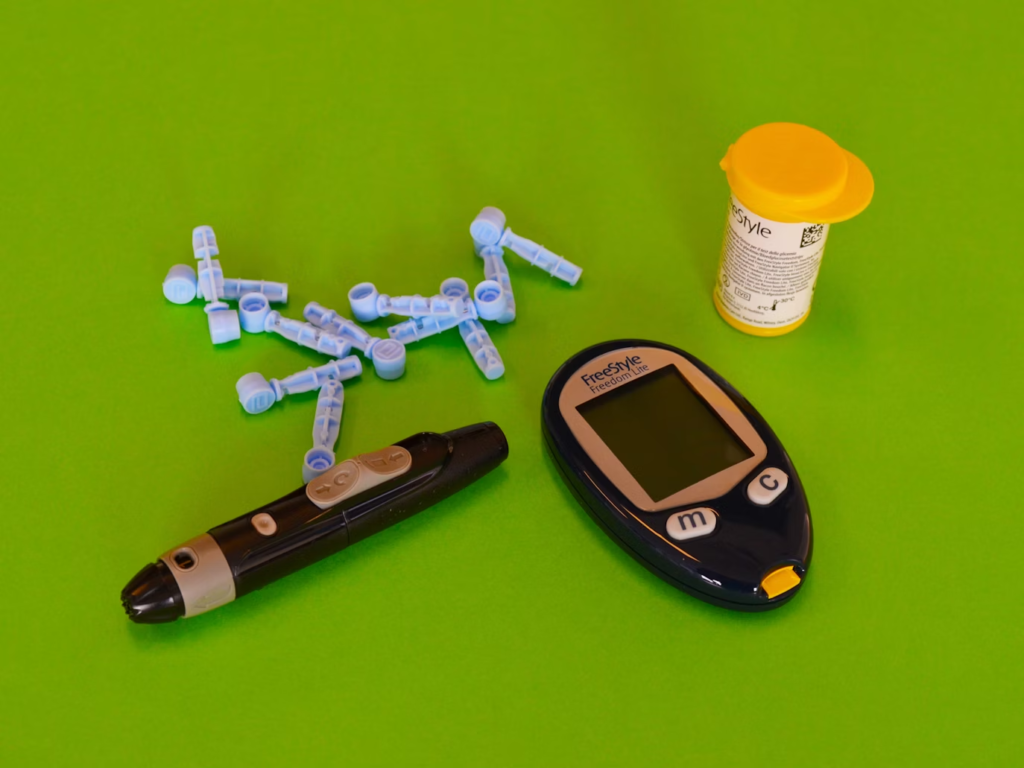
Sugar is everywhere, sweet, and addictive. Whether it’s in your morning cereal, salad dressing, or soda, sugar is sometimes an unseen component of our everyday meals. Although it may improve flavor, sugar’s negative health repercussions are far from pleasant.

Sugar is actually a major contributor to a number of today’s most serious health issues, ranging from heart disease and type 2 diabetes to obesity and even some types of cancer. But is sugar inherently bad, or is it our interaction with it that’s the problem?
This article explains the facts regarding sugar, breaks down myths, explains how the body uses it, and offers helpful advice on how to control your consumption without compromising your quality of life.
Really, What Is Sugar?
For energy, the body converts sugar, a form of carbohydrate, into glucose. There are mostly two kinds:
Fruits (fructose), vegetables, and dairy products (lactose) are natural sources of sugars.
Added sugars: These include the sugar found in cookies, candies, and sodas that are added during manufacturing or preparation.

Since glucose is the main fuel for your brain and muscles, your body needs some sugar to function properly.
However, problems arise when we consume too much of it, especially added sugars. —
The Sweet Deception: Myths vs. Facts
Let’s dispel some common misconceptions about sugar:
Myth 1: All Sugar Is Bad for You: The truth is that not all sugars are created equal; natural sugars are rich in fiber, vitamins, and minerals, while added sugars are the harmful ones.
Since glucose is the main fuel for your brain and muscles, your body needs some sugar to function properly.
However, problems arise when we consume too much of it, especially added sugars. —
Myth 2: Fruit’s Sugar Makes It Unhealthy
Truth: Fiber, water, and antioxidants found in whole fruits decrease the absorption of sugar and avoid blood sugar rises.
Myth 3: Sugar Must Be Totally Removed
Truth: It’s all about moderation. For most people, completely eliminating sugar is unneeded and unsustainable.
Myth 4: Products Without Sugar Are Healthier
The truth is that a lot of these goods contain hazardous chemicals or artificial sweeteners. Read the labels at all times.
The Science: The Body’s Reaction to Sugar
Examining how sugar affects your biology is necessary to comprehend the facts about it.
Increases in Blood Sugar
When simple sugars, such as those found in soda or candy, are consumed, blood glucose levels quickly rise and then fall. Fatigue, irritation, and hunger may result from this, which may cause overeating.
Insulin resistance, a prelude to type 2 diabetes, can result from a persistently high sugar intake. In order to create insulin, the pancreas overworks itself until it loses its effectiveness.
Storage of Fat
Fat is the result of storing too much glucose. This causes weight gain over time, particularly visceral fat, which envelops organs and raises the risk of metabolic disorders.

Effects on the Brain
Like addictive substances, sugar triggers the reward system in the brain. When attempting to reduce, this exacerbates withdrawal symptoms and sugar cravings.
Aging and Inflammation
Consuming a lot of sugar causes chronic inflammation, which is connected to aging and conditions including Alzheimer’s, heart disease, and arthritis.
Chronic Disease and Sugar: A Silent Culprit
Here is a summary of the main chronic illnesses that sugar is linked to:
1.Being overweight
Beverages with added sugar are one of the main causes of obesity worldwide. They provide you “empty calories,” which increase your daily intake considerably without satisfying your hunger.
- Diabetes Type 2
Consuming too much sugar raises the need for insulin, which ultimately results in insulin resistance and, frequently, diabetes.
- Heart Conditions
Sugar increases blood pressure, LDL cholesterol, and triglyceride levels—all of which are risk factors for cardiovascular disease.

The liver is where fructose is processed. High
Non-alcoholic fatty liver disease (NAFLD) may result from consumption.
Sugary foods cause cavities and gum disease by feeding bad bacteria in your mouth.
What Is Too Much Sugar?
The American Heart Association (AHA) and the World Health Organization (WHO) state:
Recognizing Unstated Sugars on Food Labels
Food firms conceal the amount of sugar in their products by using creative marketing and different labels. Be wary of ingredients such as:
Corn syrup
Maltose
Dextrose
Juice from cane
Concentrated fruit juice
Nectar from agave
Rice syrup
Pro tip: A product is probably heavy in added sugars if sugar is listed as one of the first three components.
Artificial vs. Natural Sweeteners
As the truth about sugar becomes more widely known, many people start using sweeteners instead.
Natural Sweeteners:
Stevia
Fruit of the monk
Erythritol
These are usually safe and have little influence on blood sugar levels.
Synthetic Sweeteners:
Aspartame
Sucralose
Saccharin
Although they have no calories, some people may experience changes in their gut bacteria and an increase in their need for sugar.
How to Cut Down on Sugar
IN Although they have no calories, some people may experience changes in their gut bacteria and an increase in their need for sugar.
Take Without Sensing Deprivation
Reducing sugar consumption does not entail sacrificing enjoyment. Here are a few useful tactics:
- Begin Little
Reduce the amount of sugar in your cereal, tea, and coffee over time. Over time, your taste buds will change.
- Increase Your Home Cooking
This prevents hidden sugars and allows you control over the components.
- Select Whole Fruits
Choose fruits if you’re desiring something sweet. They give you nutrition and fiber while also satisfying your sweet tooth.
- Pay Close Attention to Labels
Keep an eye out for “added sugars” and select goods that contain fewer than 5g per serving.
- Exchange Drinks
Use seltzer, herbal tea, or flavored water in place of sodas and sugary drinks.
- Eat Wisely
Healthy and filling substitutes include nuts, seeds, plain yogurt with fruit, and vegetables with hummus.
Sugar’s Effect on Mental Health
Recent research relates eating a lot of sugar to mood problems, anxiety, and sadness. The emotional highs and lows associated with these situations are mirrored by the surges and crashes caused by sugar. Additionally, sugar-induced chronic inflammation has an impact on mood regulation and brain function.
Frequently Asked Questions on Sugar
Is honey better for your health than white sugar?
Honey is still sugar and should be used sparingly, even if it contains trace minerals and antioxidants.
If I have diabetes, may I eat sugar?
Yes, but it really matters how much you consume and what kind of sugar you eat (ideally complex carbohydrates with fiber).
Which is worse, sugar or fat?
In excess, both can be detrimental. However, contemporary diets frequently minimize fat while neglecting the significant sugar content of “low-fat” foods.
You may significantly lower your sugar intake and enhance your long-term health by reading labels, making educated decisions, and embracing whole foods.
Although you don’t have to give up sugar completely, you may improve your energy and focus, prevent sickness, and reduce weight by being attentive and consuming less of it each day.
Last Words of Advice: Take Command Now
Make minor changes first.
Avoid being duped by “sugar-free” claims.
Make sensible use of natural sweeteners.
Make water your primary beverage.
Teach your family, especially the children
My dear daughter Faiza Abdi, go forward till u become or reach your goal, and focussed on inly one sector Sach as diabetic diseases.
I hope you goowill.
thank you my dear uncle